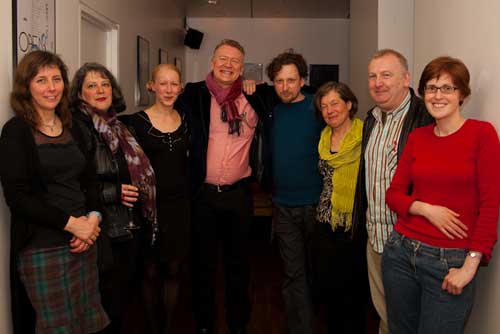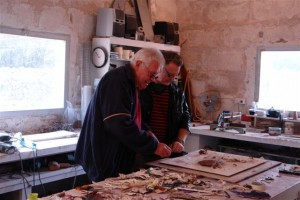One of the things that keeps me too busy to blog often here is my work with The International Literary Quarterly, also known as Interlitq. One of the exciting developments with the literary journal over the past year is the inclusion of more works by authors writing in Spanish, such as Argentine writers María Teresa Andruetto, Marcelo Cohen, Eugenio Conchez, Patricia Delmar, María Negroni and Ana María Shua; Chilean writers Carla Guelfenbein, Lina Meruane, Hernán Neira, Nicolás Poblete, Cynthia Rimsky, and Mauricio Wacquez; as well as works in Spanish by Luis
Cernuda, Rubén Dario and Rosalia de Castro.
The interest in Spanish-language literature stems from the fact that several members of Interlitq’s editorial board have ties to Latin America. Founding Editor & President Peter Robertson has been resident in Spain and Argentina for the last fifteen years and is also starting to spend more time in Monterrey, Mexico; Beatriz Hausner (the General Editor) is originally from Chile; consulting editor María Teresa Andruetto as well as assistant editors Eugenio Conchez and Patricia Delmar are all Argentines. And, of course, I am an American based in Argentine and serve Interlitq in the capacity of Deputy General Editor.
A visit over to Interlitq’s Palermo offices, just around the corner from Parque Las Heras, finds Peter Robertson availing himself of a lull in frenetic activity to sip a glass of Malbec as he describes the shift in direction for Interlitq, “While as many as 84% of our readers come from the U.S., Interlitq now has one eye firmly trained on literature being written in Spanish. Publishing extensively in Spanish was just a matter of time for us. While we will continue to publish literature in many different languages, Interlitq now perceives itself as being essentially a bilingual publication, in English and in Spanish. And let me be clear that Interlitq is interested not only in publishing established authors writing in Spanish but also new, unheralded voices. To this end, a few weeks ago we initiated an open submissions policy at Interlitq, so that everyone, whether writing in Spanish or in English, is welcome to send us their work for appraisal”.

In June 2011 Interliq will publish a major feature on Panamanian literature. Robertson explains, “This venture is very exciting for us as it will be our first major feature in Spanish. And so far I am delighted to confirm that the prose writers: Lissete Lanuza Sáenz, Gloria Melania Rodríguez, Lili Mendoza, Annabel Miguelena V., Klenya Morales, Roberto Pérez Franco, Melanie Taylor and Carlos Wynter Melo; and the poets Javier Alvarado, Magdalena Carmargo Lemieszek, Edilberto González Trejos, Eyra Harbar, Gorka Lasa Tribaldos, Salvador Medina Barahona and Javier Romero Hernández have all committed to this project”.
Preparing to return to the task of evaluating texts for possible inclusion in Interlitq, Robertson winds up by saying, “With all of these writers on board, this Panamanian feature will set the stage for further features to be published by us in Spanish. Furthermore, we at Interlitq are fascinated by the idea of cultural intersections and linguistic confluences; for example, showcasing the writing, in both English and Spanish, coming out of New York would certainly make for a fascinating project. And, while we did already publish a feature on Miami in Issue 13 of Interlitq (“15 Miami Poets”) we would be interested in the possibility of returning to that city later in 2011, so as to provide Miami with a more extensive platform for its anglophone and hispanophone voices, and its ethnically diverse artwork”.
Interlitq always has aimed at publishing works in more than English. The most notable example is the Volta project featuring one poem along with its translation into more than 90 languages.
The International Literary Quarterly is a not-for-profit corporation (New York) and was founded in 2007. For details about submissions, whether in Spanish or in English, please see the guidelines.

